Auxiliary View Engineering Drawing, This is a type of orthographic view used to represent planes that are horizontal or vertical.
Auxiliary View Engineering Drawing - Visualizing a primary auxiliary view: Web construct depth, height, or width auxiliary views. Using the auxiliary view allows for that inclined plane (and any other significant features) to be projected in their true size and shape. It is typically used in technical drawings and engineering to show details that are not easily visible in standard orthographic views. Web an auxiliary view is an orthographic view that is projected into any plane other than one of the six primary views. For many objects the six principle views do not always describe an object’s true shape. Make a rough sketch of the structure on paper. Ideally, the view that is created should be shown in line with the direction of view. Web there are three basic type of auxiliary views. Web understanding the types, principles, and significance of engineering drawing views empowers engineers and designers to communicate design intent effectively, visualize complex geometries accurately, and ensure manufacturability and compliance with industry standards. Web auxiliary drawings are used to help visualize a structure more clearly. An auxiliary view is used to show the true size and shape of an inclined or oblique surface that can not be otherwise seen from any of the six principal views discussed in the previous chapter. Web an auxiliary view is an orthographic view on a plane that. Plot curves in auxiliary views. Web an auxiliary view in engineering drawing is a supplementary image that displays an object or part from an angle not shown in the main views. Understand the problem and what you are trying to draw. It is typically used in technical drawings and engineering to show details that are not easily visible in standard. Plot curves in auxiliary views. Web this exercise takes you through the steps required to construct an auxiliary view. Web there are three basic type of auxiliary views. Use a ruler and other geometry tools to create a more accurate drawing. Web to present a more accurate description of any inclined surface, an additional view, known as an auxiliary view,. There are an infinite number of possible auxiliary views of any given object. For many objects the six principle views do not always describe an object’s true shape. It helps exhibit inclined surfaces without distortion. It is typically used in technical drawings and engineering to show details that are not easily visible in standard orthographic views. Make a rough sketch. Whereas, breadth and other detail are obtained from other views like side view, top view, for the completion of the auxiliary views. Web construct depth, height, or width auxiliary views. Web an auxiliary view is an ortographic view taken in such a manner that the lines of sight are not parallel to the principal projection planes (frontal, horizontal, or profile).. Visualizing a primary auxiliary view: Web understanding the types, principles, and significance of engineering drawing views empowers engineers and designers to communicate design intent effectively, visualize complex geometries accurately, and ensure manufacturability and compliance with industry standards. If the object contains an inclined surface, you need an additional view called a primary auxiliary view. Web there are three basic type. Exploded view is used to show assembly models in the drawing sheet. Web auxiliary drawings are used to help visualize a structure more clearly. An arrow is used to identify the surface that is looked at. It is used to clearly depict features that are not visible or precise in conventional views. Web draw primary auxiliary views representing the true. Make a rough sketch of the structure on paper. It is created from at least two principal views with the aim of showing the true shape and size of a feature. Web this exercise takes you through the steps required to construct an auxiliary view. These views are typically used when an object contains some sort of inclined plane. For. Web understanding the types, principles, and significance of engineering drawing views empowers engineers and designers to communicate design intent effectively, visualize complex geometries accurately, and ensure manufacturability and compliance with industry standards. Web construct depth, height, or width auxiliary views. Make a rough sketch of the structure on paper. It is used to clearly depict features that are not visible. An arrow is used to identify the surface that is looked at. Construct depth, height, or width auxiliary views. Web to present a more accurate description of any inclined surface, an additional view, known as an auxiliary view, is usually required. In the first type, the auxiliary view is projected from the front view of a three view (orthographic) drawing.. Ideally, the view that is created should be shown in line with the direction of view. Understand the problem and what you are trying to draw. Web this exercise takes you through the steps required to construct an auxiliary view. Web view of the object projected on the auxiliary plane is called auxiliary top view and the auxiliary plane is called auxiliary inclined plane and denoted as aip. Draw apparent shapes of surfaces in either the principal views or auxiliary views, if at least one of the views represents the true shape. Web draw primary auxiliary views representing the true shapes of surfaces that are perpendicular to one of the reference planes and inclined to the other two. If the object contains an inclined surface, you need an additional view called a primary auxiliary view. Use a ruler and other geometry tools to create a more accurate drawing. Web an auxiliary view is an orthographic view on a plane that is not one of the principal planes of projection. It is typically used in technical drawings and engineering to show details that are not easily visible in standard orthographic views. There are an infinite number of possible auxiliary views of any given object. In the second and third types of drawings, the auxiliary views are projected from the top and side views. Web auxiliary views are used when showing true dimensions of parts that are on an inclined angle. An auxiliary view is used to show the true size and shape of an inclined or oblique surface that can not be otherwise seen from any of the six principal views discussed in the previous chapter. An arrow is used to identify the surface that is looked at. In the first type, the auxiliary view is projected from the front view of a three view (orthographic) drawing.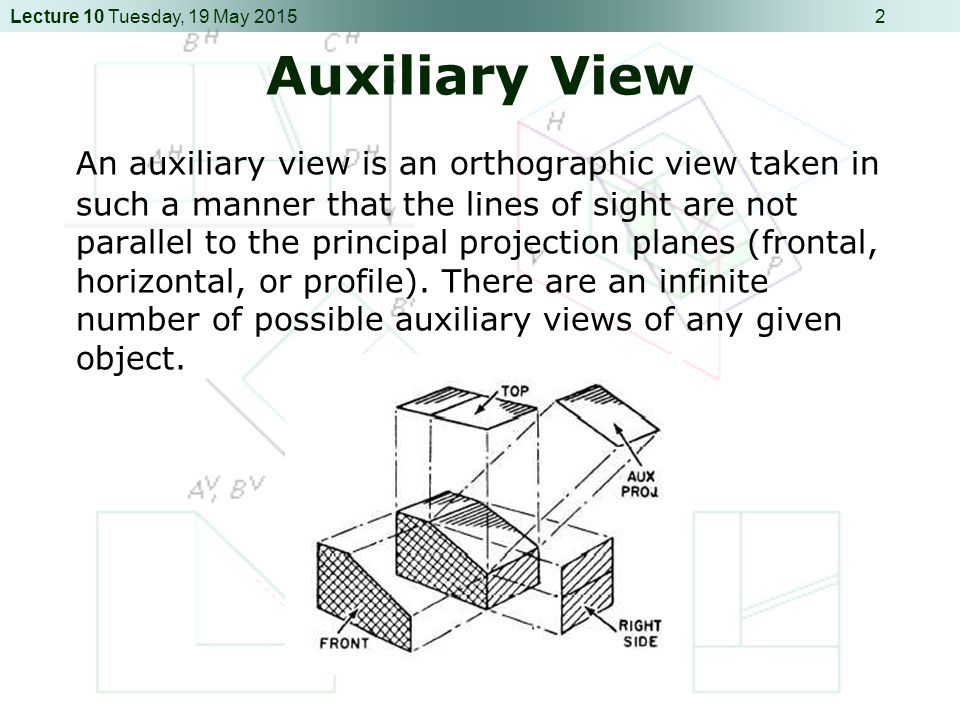
Auxiliary Views FREEMAN'S TECH ED SITE
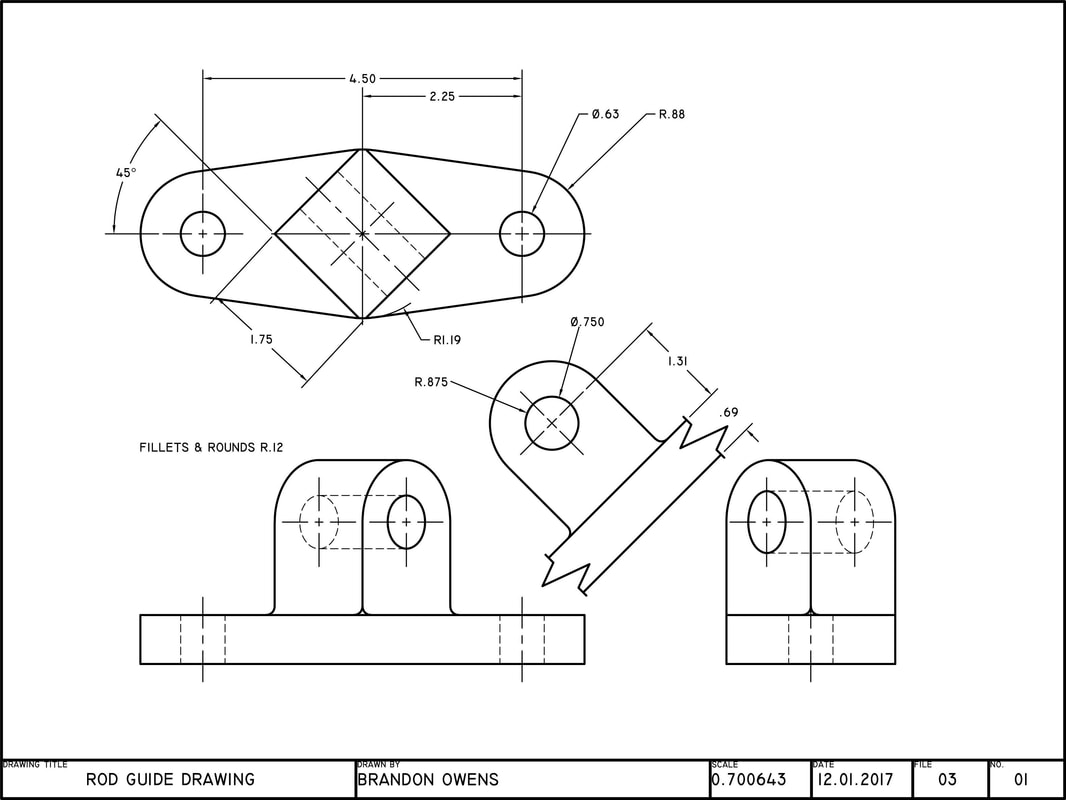
AUXILIARY DRAWINGS BRANDON OWENS' PORTFOLIO

Drawing 04_01 Primary Auxiliary View YouTube

What Is Auxiliary Plane Types of Auxiliary Plane Types of Auxiliary

AUXILIARY VIEW IN ENGINEERING DRAWING YouTube
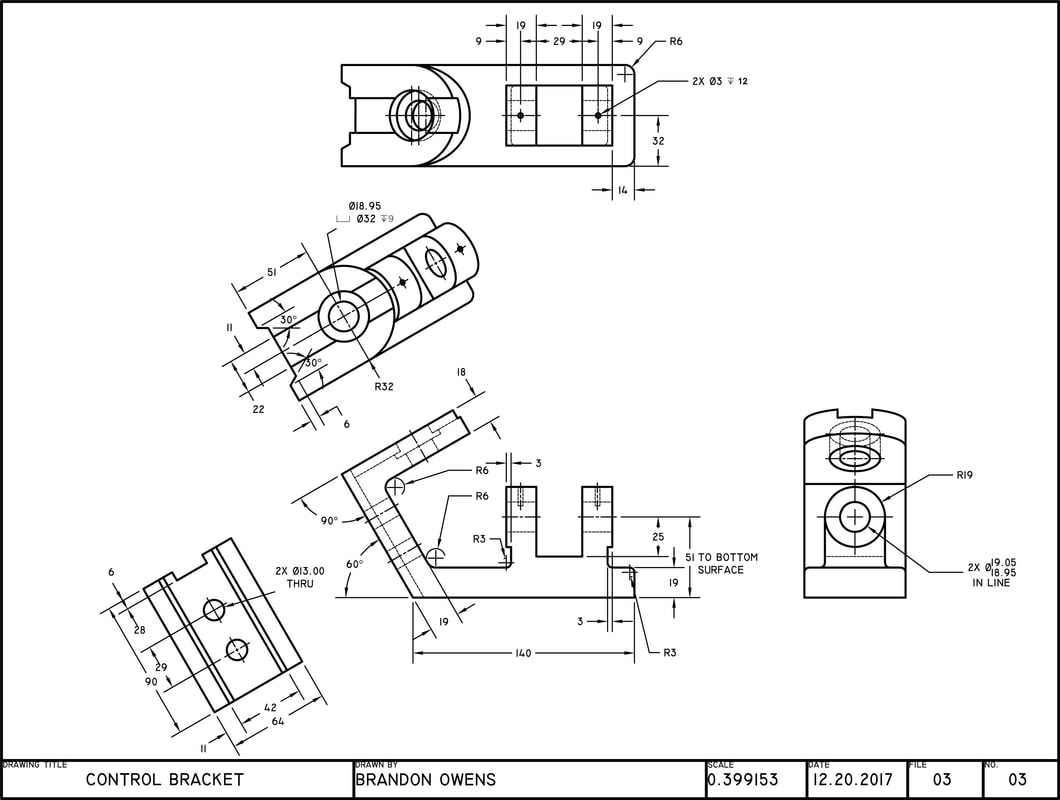
AUXILIARY DRAWINGS BRANDON OWENS' PORTFOLIO

Auxiliary view in engineering drawing YouTube
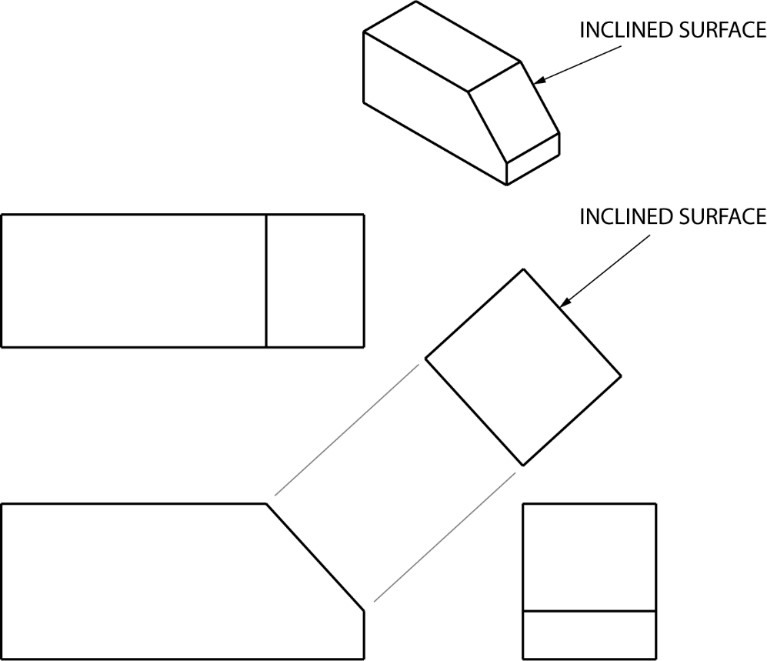
Auxiliary Views Basic Blueprint Reading
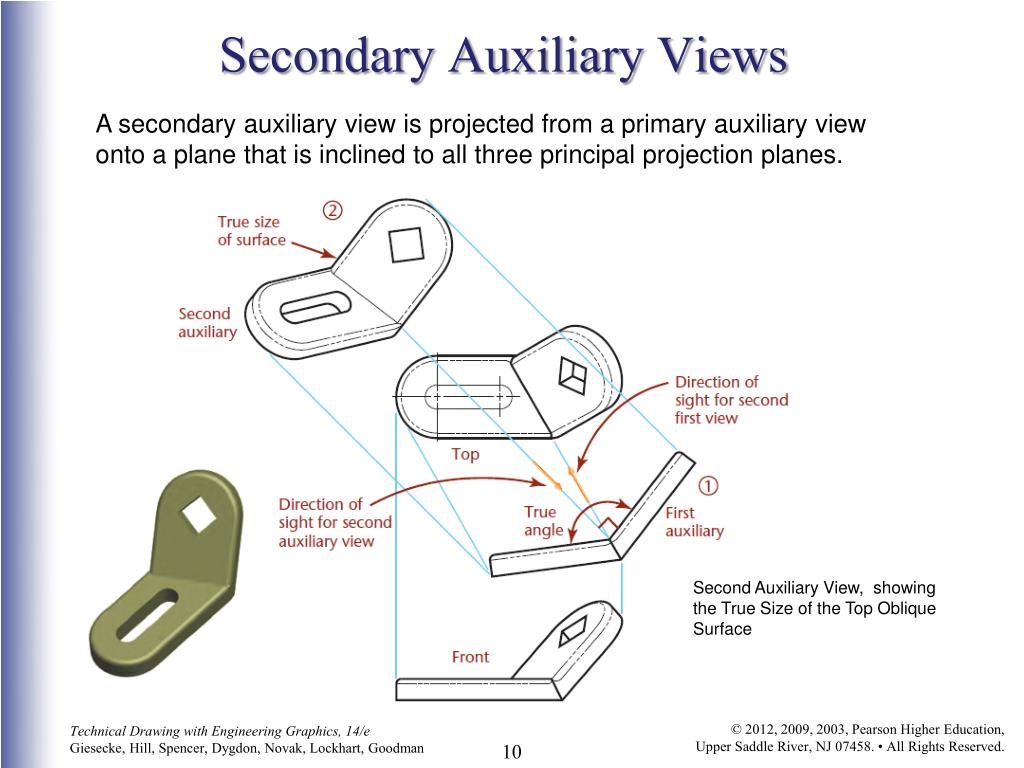
Auxiliary View
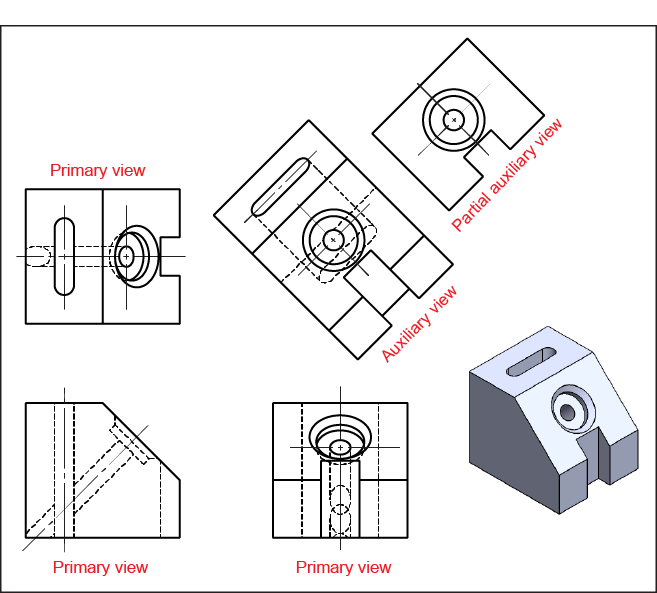
Introduction to Engineering Drawings
Web There Are Three Basic Type Of Auxiliary Views.
Web An Auxiliary View In Engineering Drawing Is A Supplementary Image That Displays An Object Or Part From An Angle Not Shown In The Main Views.
In The First Type, The Auxiliary View Is Projected From The Front View Of A Three View (Orthographic) Drawing.
In The Second And Third Types Of Drawings, The Auxiliary Views Are Projected From The Top And Side Views.
Related Post: